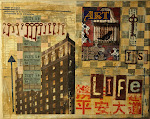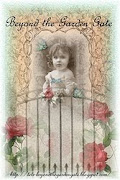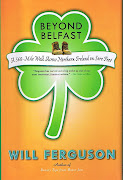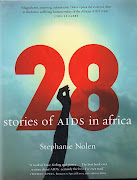
I wrote this essay for an anthropology course some years ago.
Little has changed for the better and the numbers quoted have escalated drastically...
An estimated fourteen million orphans throughout Africa live in poverty because AIDS took their parents’ lives; yet the globalization that opened up the world to many, has effectively cut these children off from the help they so desperately need. Without adequate food, health care and education, they cannot change their lives for the better, and stand little chance of survival. For 315 million Africans living on one dollar a day, resources are nearly impossible to access. Brand-name medicines are costly and without them, an entire generation of adults in the childbearing years is losing its fight with AIDS. Those orphaned by this disease must watch one, or both parents die a slow and agonizing death. Grandmothers take in their grandchildren whenever possible, and when the grandmothers die, the eldest child in a family becomes head of the household, looking after younger siblings. Penniless, parentless and forgotten, the orphans of Africa fall into obscurity, their needs unmet by the world, their futures devoid of promise.
.
Child-headed families struggle daily to find food and shelter. Attending class is not an option; they cannot afford the mandatory user fees imposed by aid agencies; and even in countries where those fees are waived, the cost of books, supplies, and uniforms remains outside the reach of most. As a result, roughly 44 million children are excluded from primary education in Africa. Those without parents or teachers lose valuable access to the knowledge and tradition normally passed along from one generation to the next, and to the absorption of family and group values that provide children with confidence and a sense of place. World governing agencies agree that education is key to the survival of these vulnerable children; yet funds donated to local governments for use in health and education rarely reach their target. Budget cuts, corruption and mismanagement mean that up to 90 percent of the national budgets in some countries goes toward government salaries, leaving little else to cover the larger demands.
.
Education and health care are equally hard-hit by international policies put in place with good intent that still miss their mark. A loan to Africa by a body such as the World Bank often comes with binding conditions. This impacts medical care when severe pay restrictions and hiring policies force many health-care professionals to seek work on other continents. Additionally, AIDS takes not only the lives of Africa’s mothers and fathers, but those of its doctors, nurses and teachers, leaving in its wake a modicum of trained personnel to cope with the millions of families affected by the disease. Mass privatization of resources dictates that only brand-name drugs be used, and patent restrictions prohibit the development of generic medicine that would be a fraction of the cost. Many orphans left behind are themselves HIV-infected: 90 percent of all children with the virus contract it from their mother at birth. A single dose of a drug called nevirapine given to the mother in labour and to the child at birth, along with a Caesarean delivery and formula feeding, lowers the risk of passing on the virus to less than 2 per cent. Even if the drug was more affordable, limited access to health facilities means that 700,000 African children are still born infected each year to potentially become the next generation leaving its orphans behind.
.
The African continent has serious economic and social issues to address. Eradicating AIDS remains its main challenge, because while this disease continues to spread uncontrolled, it compromises every other aspect of development. Following decades of colonialism, sub-Saharan countries struggle to take their place among the family of democratic nations. Debt, corruption, and tyranny have left much of the continent crippled with overwhelming debt. Resources generated by global governance are often mismanaged, rarely translating into improved infrastructure or technological development that would facilitate Africa’s move toward self-sufficiency. In the midst of widespread machination, the plight of AIDS orphans escapes notice.
.
Tucked away in villages far from main roads, bereft at the loss of parents and grandparents, families of small children are malnourished, lonely and afraid. Their needs appear simple; yet remain well beyond any chance of attainment. As well as education and health care, providing basic resources like water, nutrition, sanitation, and instruction on the tending of small crops would drastically improve the lot of these youngsters and offer them the chance of a future. Most African countries do not have a tradition of orphanages in the Western sense we have come to understand. Family and community once formed a safety net to care for orphaned children, but AIDS has ripped away this net and destroyed village life, as it was known. We must make constructive resources available to these children if they are to build new communities, forge lasting connections, and develop the means to get on with their lives.
.
Twenty-five years into the pandemic that has ravaged the African continent, there is still no master plan in place to help its orphans, in spite of global efforts to improve finance, health care and education. The chaos created by this disease has gone on so long that the original orphans are now adults, who risk the same fate as their parents because they lack information and services that would help them to make safe choices. For children orphaned by AIDS, schooling is vital. Beyond its traditional role, a school is a centre for immunization, for meal programs, and for much-needed education on HIV/AIDS. Without primary education, children cannot go on to university or acquire the trade skills needed to support themselves as adults. The wealth of creativity, intelligence and innovation these resourceful young people might contribute is beyond measure; tapping that potential may be the best tool in reshaping the future of their continent and the upcoming generations who will inherit its problems.
.
Stephen Lewis tells us pointedly...“Allowing world economic problems to be taken out on the growing minds and bodies of young children is the antithesis of all civilized behaviour” and “it shames and diminishes us all”. Africa is a continent wherein children are raising children. If the world has become a global village, these are our children in this new extended family, and they need our help to learn to help themselves. Their lives are in our hands now; we cannot, and must not, let them down.
.

 I was fortunate enough to spend time with these wonderful children while visiting a Masai village in Kenya in 2006. Like youngsters everywhere, they were giggly, shy, curious and keen to be noticed.
I was fortunate enough to spend time with these wonderful children while visiting a Masai village in Kenya in 2006. Like youngsters everywhere, they were giggly, shy, curious and keen to be noticed.









.jpg)
.jpg)
.jpg)
.jpg)
.jpg)
.jpg)
.jpg)
.jpg)
.jpg)



.jpg)
.jpg)
.JPG)
.jpg)









